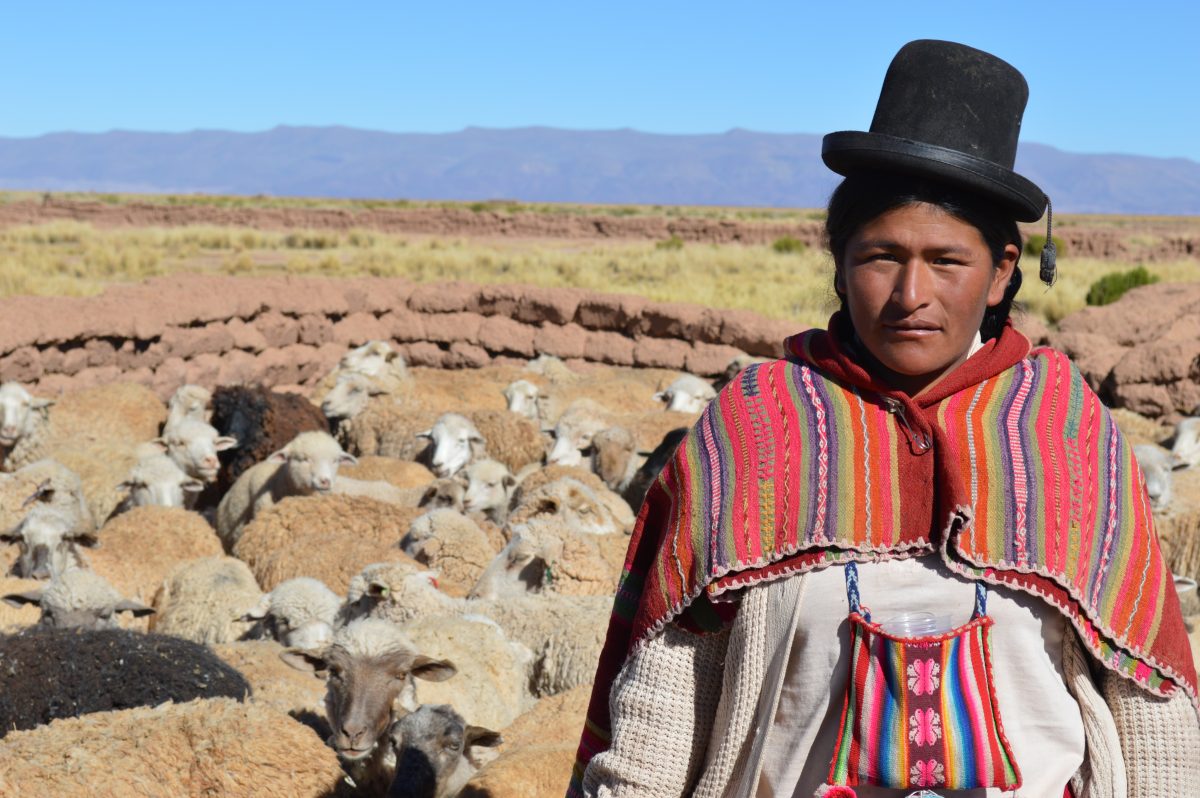By Megan Barickman, Development Writer

Through our grantmaking at Global Greengrants Fund, we have often seen how small groups grow and create far-reaching impact by developing strong networks and organizational infrastructure. This is especially true for groups, like women’s groups, whose members have had less access to and experience with advocacy and political spaces and need alternative structures in which to develop their leadership skills.
The National Confederation of Indigenous Women of Bolivia (CNAMIB), which started as a few women meeting under a tree, is now a broad-reaching network of women’s organizations throughout Bolivia, where women have traditionally have had little power or influence. In 2014 and 2018, CNAMIB received grants from Global Greengrants, and used the funding for a broad scope of activities that demonstrated the breadth of its influence and work. Leaders from the organization met with Indigenous communities in Chaco and the Bolivian Amazon facing extractive projects threatening their rights, livelihoods, and environment. Members developed training materials on national and international laws concerning the rights of Indigenous Peoples, hosted workshops in impacted communities, and organized meetings for women Indigenous leaders from communities impacted by extractive projects to exchange experiences, challenges, and lessons from their work.
CNAMIB was founded in 2007 in Santa Cruz, by Indigenous women in the lowlands, where mining and oil concessions within Indigenous territories and protected areas had already led to environmental pollution, forced displacement of communities, incursions into Indigenous territories, and cultural loss. These problems affected entire communities, but due to gender disparities in responsibilities, access to education, and opportunities, women were impacted in different ways, framed the problems differently, and saw different solutions. Many of the women that first formed CNAMIB were members of Indigenous organizations, but struggled to have their experiences and agendas heard within the male-dominated groups. CNAMIB formed to bring Indigenous women together, elevate individual grievances into shared political positions, and create political power for Indigenous women through organization and collective action.
Over more than a decade of work, CNAMIB has advanced from that first, informal group, meeting outside, to an established organization with broad representation and a network of affiliate organizations spread over the Eastern region of Bolivia and the Chaco. They have trained women leaders on the laws concerning the rights of Indigenous Peoples, and of women in particular, and on the basic tools for advocacy and political participation, slowly building up women’s leadership in the regions of Bolivia where it was most lacking. Workshops and community exchanges hosted by CNAMIB have educated communities on the impacts of extractive and infrastructure projects and on strategies to advance their rights. CNAMIB’s workshops have even begun to attract men from the communities where they work, an enormous step forward for the organization in dismantling the patriarchal attitudes that have barred women’s participation in decision-making in the past and a powerful testament to the respect the organization has gained. In the community of San Lorenzo de Moxos, for example, an equal number of men and women arrived for a CNAMIB workshop to strategize on solutions to flooding caused by climate change.
The women of CNAMIB are keenly aware of the importance of maintaining a strong organization, and understand that CNAMIB’s network, infrastructure, and social fabric are its biggest assets. In addition to its connections across Bolivia, CNAMIB has developed permanent processes to disseminate information on laws, participate in organizing events, and travel throughout the territory. CNAMIB has also worked hard to ensure that the obstacles it has encountered, including harassment from the government, have brought members of its network closer together, rather than weakening their ties. Going forward, CNAMIB is investing in expanding its network to new areas and issues, uniting even more women leaders and environmental defenders.
Photo: CE/ECHO/ R. Silva/CC BY
